This article was medically reviewed by Luba Lee, FNP-BC, MS. Luba Lee, FNP-BC is a Board-Certified Family Nurse Practitioner (FNP) and educator in Tennessee with over a decade of clinical experience. Luba has certifications in Pediatric Advanced Life Support (PALS), Emergency Medicine, Advanced Cardiac Life Support (ACLS), Team Building, and Critical Care Nursing. She received her Master of Science in Nursing (MSN) from the University of Tennessee in 2006.
There are 13 references cited in this article, which can be found at the bottom of the page.
This article has been viewed 40,055 times.
Earaches can keep anyone up at night, and it's painful and frustrating when you or your child are suffering from one. It’s important to have a doctor diagnose and treat the root cause of the earache as soon as possible to help speed up the recovery process. Most earaches will clear up within 2-3 days, but in the meantime, you can ease the pain with warm compresses and over-the-counter medications as needed. However, if your ear pain doesn't clear up or it's accompanied by other symptoms, you may need to see a doctor to make sure something else isn't wrong.[1]
Steps
Easing the Pain without Medication
-
1Put a warm washcloth over the affected ear. Run a washcloth under warm water. Wring out the excess water from the cloth and lay it over your ear. The warmth from the water will provide some relief.[2]
- Re-warm the washcloth as often as needed.
-
2Place a cool washcloth over your ear if warmth doesn't work. Warm or cool compresses can both help relieve pain, so if one isn't working, try the other. For a cool compress, dip a washcloth in cold water and wring it out. Lay it over the ear and leave it there to help with the pain.[3]
- You can re-wet the washcloth as needed.
- You can also use ice wrapped in a washcloth. However, do not leave ice on for more than 20 minutes. You can leave cool compresses made with just water on as long as you want.
- You may find that alternating heat and cold is helpful.[4]
Advertisement -
3Avoid secondhand cigarette smoke if you or your child has an earache. Cigarette smoke decreases the ears' ability to drain fluid, which can make earaches and infections worse. Ask smokers to go outside if anyone in your household has an earache.[5]
- This tip is also helpful for preventing earaches.
-
4Prop your head up with a few pillows. Sleeping a bit more upright may help the fluids drain, relieving pressure. Simply put an extra pillow or 2 under your head or lift your child's head up the same way.[6]
- Only do this if your child is old enough to use pillows.
-
5Try a gentle massaging motion for tension-related earaches. Sometimes, earaches arise due to tension headaches. Massaging the area behind the ear may help. Place your fingers just behind your ear and rub down toward the back of your neck. Then, repeat the same downward motion as you go under your ear, eventually moving to just in front of your ear.[7]
- This motion may help drain fluids.
- It may also provide relief when earaches arise from conditions like temporomandibular joint and muscle disorders.[8]
-
6Suck on a piece of hard candy or a cough drop. Eating something using a sucking motion can relieve pressure in your ears. Older children can also suck on hard candy for pain relief. For younger kids, try a pacifier or even a bottle or breast.[9]
- Keep in mind that hard candies are a choking hazard for children, particularly under the age of 7. If your children are under 7, you might try something else that uses a sucking motion, such as a popsicle before bed.
Using Medication
-
1Try acetaminophen or ibuprofen to help relieve pain. Use these over-the-counter medications to help ease earaches by taking them or giving them to your child at bedtime. If you're treating a child, make sure to give them the children's version and always read the package to give the child an appropriate dose.[10]
- Avoid giving aspirin to kids as it puts them at risk for Reye's Syndrome. Also, don't give ibuprofen to babies under 6 months.[11]
- Always talk to your doctor before starting a medication.
- With many pain relievers, you can give another dose in 4 hours, so check the package.
-
2Medicate with ear drops if your doctor recommends them. To use analgesic or pain-relieving ear drops, lie down on your side or have your child lie down with the affected ear facing up. Place the dropper just above the ear canal and drip a few drops in. Stay in this position for a few minutes to give the ear drops a chance to sink in.[12]
- These typically are prescribed for the pain, though some may have antibiotics in them.
- Ear drops are available over-the-counter, but you should talk to your doctor first before using them.
-
3Give a full round of antibiotics if prescribed by the doctor. Antibiotics will help clear the infection if it's bacterial, relieving pain. If you've already seen a doctor who's given you or your child antibiotics, make sure to take all of the prescribed medicine, even if it seems like you're better. Otherwise, the infection could return.[13]
Visiting the Doctor
-
1Call the doctor immediately if the earache is accompanied by other symptoms. Look for swelling in or around the ear, a stiff neck, and unsteady balance. Also, if your child seems confused or has a fever over 104 °F (40 °C) with the earache, you should visit the doctor.[14]
- Also, call if the earache seems severe and doesn't respond to an over-the-counter pain reliever in 2 hours.
- If you have a compromised immune system due to conditions like cancer, sickle cell disease, or HIV, see the doctor with an earache. Organ transplants or oral steroids can also cause issues with the immune system.
- It's also important to see the doctor immediately if a sharp object in the ear caused the pain.
-
2See the doctor if your child is under 2 with pain in both ears. If you're caring for a child under 2 with ear pain in both ears, that could be a sign of a more serious condition. Check their temperature; if it's over 102.2 °F (39.0 °C), see the doctor.[15]
-
3Go to the doctor if the pain lasts more than 2 days. This is especially true in kids. Most of the time, the doctor will want to wait it out a bit anyway. Ear infections and earaches are not always caused by bacteria, so antibiotics aren't helpful all the time. However, if it persists, you should talk to your doctor so that it doesn't develop into a worse infection.[16]
-
4Ask if a specialist is appropriate for frequent ear infections. If you or your child are getting ear infections constantly, it may be time to see an ear, nose, and throat (ENT) specialist. Talk to your family doctor about a referral. An ENT doctor can help decide if further treatment is needed, such as inserting tubes in the ears.[17]
- Tubes help open up the ear, allowing fluid to drain, which is particularly helpful in children.
Expert Q&A
-
QuestionHow should I sleep with ear pain?
 Monica Kieu, DO, FACSDr. Monica Kieu is a board certified Otolaryngologist and Specialist in Facial Plastic and Reconstructive Surgery in Los Angeles, California. Dr. Kieu received a BS in Anthropology from the University of California, Riverside and earned her medical degree (DO), with honors, from Western University of Health Sciences in Pomona. She then completed her residency in Otolaryngology-Head and Neck Surgery at Michigan State University/Detroit Medical Center, where she served as chief resident. Dr. Kieu also completed a prestigious fellowship in Facial Plastic and Reconstructive Surgery at the University of Toronto. She is a member of the American Academy of Otolaryngology-Head and Neck Surgery, American Osteopathic Colleges of Ophthalmology and Otolaryngology-Head and Neck Surgery, American Academy of Cosmetic Surgery, American Academy of Facial Plastic and Reconstructive Surgery, and the American Rhinologic Society. Dr. Kieu was recently named one of LA’s Top Docs by Los Angeles Magazine.
Monica Kieu, DO, FACSDr. Monica Kieu is a board certified Otolaryngologist and Specialist in Facial Plastic and Reconstructive Surgery in Los Angeles, California. Dr. Kieu received a BS in Anthropology from the University of California, Riverside and earned her medical degree (DO), with honors, from Western University of Health Sciences in Pomona. She then completed her residency in Otolaryngology-Head and Neck Surgery at Michigan State University/Detroit Medical Center, where she served as chief resident. Dr. Kieu also completed a prestigious fellowship in Facial Plastic and Reconstructive Surgery at the University of Toronto. She is a member of the American Academy of Otolaryngology-Head and Neck Surgery, American Osteopathic Colleges of Ophthalmology and Otolaryngology-Head and Neck Surgery, American Academy of Cosmetic Surgery, American Academy of Facial Plastic and Reconstructive Surgery, and the American Rhinologic Society. Dr. Kieu was recently named one of LA’s Top Docs by Los Angeles Magazine.
Board Certified Otolaryngologist
Warnings
- Kids tend to get earaches more frequently than adults, mainly because their eustachian tubes are smaller and they can't fight infections off as well as adults. They are more likely to get an earache after having a respiratory condition, such as a cold or the flu.[20]⧼thumbs_response⧽
- Don't put your baby down to sleep with a bottle as fluid can drain into the ears.[21]⧼thumbs_response⧽
- Avoid putting cotton swabs or any long object in the ear to clean it. Instead, gently wash the outer edge of the canal with a washcloth. Never stick anything in the ear canal.[22]⧼thumbs_response⧽
References
- ↑ https://familydoctor.org/condition/ear-infection/
- ↑ https://health.clevelandclinic.org/3-home-remedies-for-an-ear-infection/
- ↑ https://www.nhs.uk/conditions/earache/
- ↑ https://www.drugs.com/cg/ear-infection.html
- ↑ https://www.rch.org.au/kidsinfo/fact_sheets/ear_infections_and_otitis_media/
- ↑ https://www.rch.org.au/kidsinfo/fact_sheets/ear_infections_and_otitis_media/
- ↑ https://www.youtube.com/watch?v=NIYfApRGf1Q
- ↑ https://cybercemetery.unt.edu/archive/oilspill/20120921213416/http://www.nlm.nih.gov/medlineplus/ency/article/001227.htm
- ↑ https://my.clevelandclinic.org/health/diseases/22527-eustachian-tube-dysfunction
- ↑ https://www.nidcd.nih.gov/health/ear-infections-children
- ↑ https://kidshealth.org/en/parents/earaches-sheet.html
- ↑ https://www.rch.org.au/kidsinfo/fact_sheets/ear_infections_and_otitis_media/
- ↑ https://www.nidcd.nih.gov/health/ear-infections-children
- ↑ https://www.seattlechildrens.org/conditions/a-z/earache/
- ↑ https://familydoctor.org/condition/ear-infection/
- ↑ https://familydoctor.org/condition/ear-infection/
- ↑ https://familydoctor.org/condition/ear-infection/
- ↑ https://kidshealth.org/en/parents/earaches-sheet.html
- ↑ https://www.nidcd.nih.gov/health/ear-infections-children
- ↑ https://www.nidcd.nih.gov/health/ear-infections-children
- ↑ https://www.nidcd.nih.gov/health/ear-infections-children
- ↑ https://kidshealth.org/en/parents/earaches-sheet.html
About This Article
To relieve your ear pain at night, try putting a warm, damp washcloth over your ear, which should provide some relief. If that doesn’t work, try using cool water instead, or alternate between the 2. You can also sleep with an extra pillow or 2 under your head, which can relieve some of the pressure on your ears. If your ear pain comes from a tension headache, gently massage the area behind your ear, rubbing down toward the back of your neck. Over-the-counter painkillers, like acetaminophen or ibuprofen, can also help to relieve ear pain. For more tips from our Medical co-author, including how to treat ear pain with prescription medication, read on!
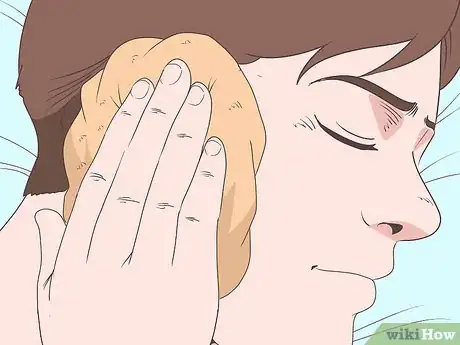
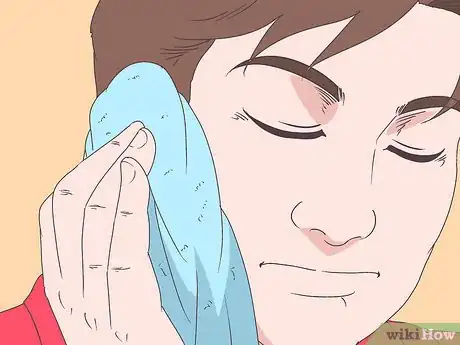
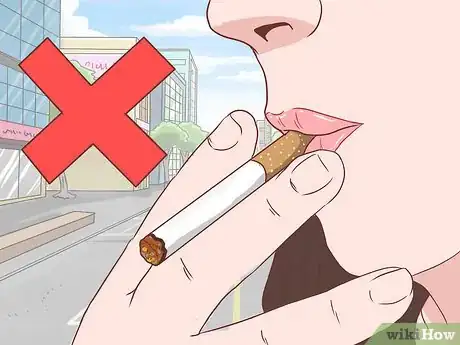
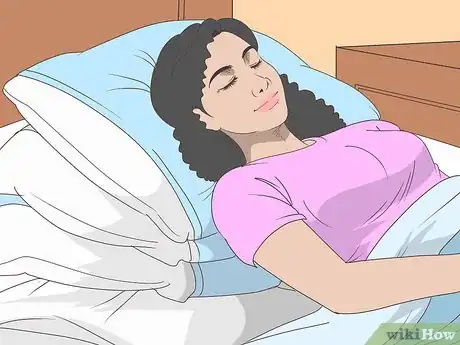
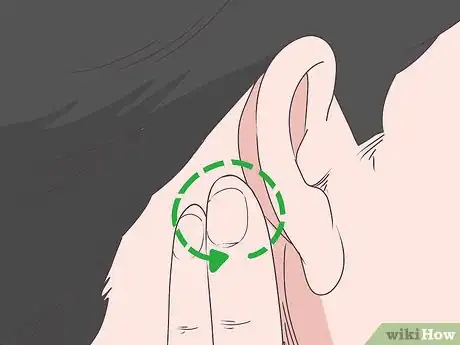
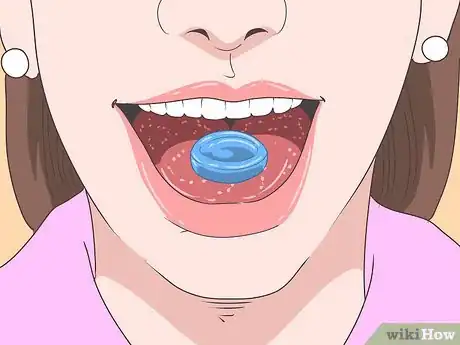
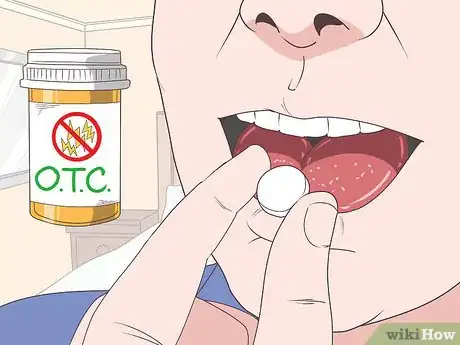
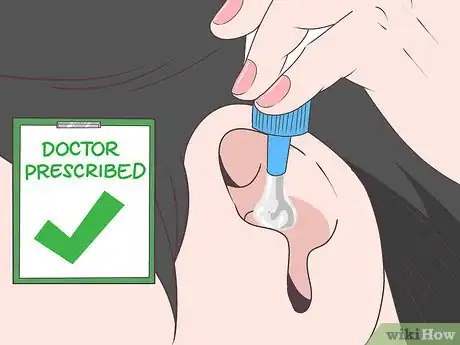
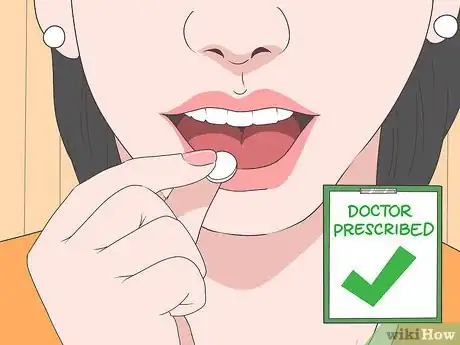
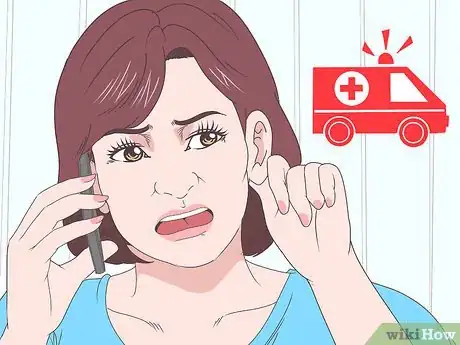
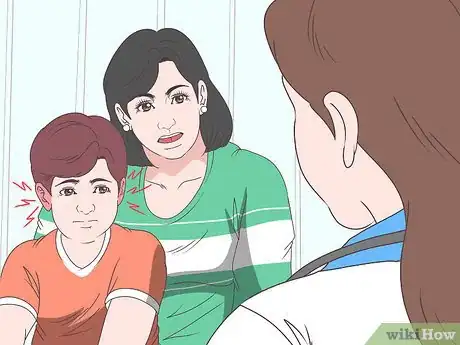
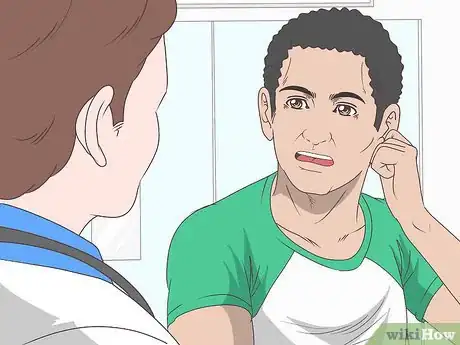
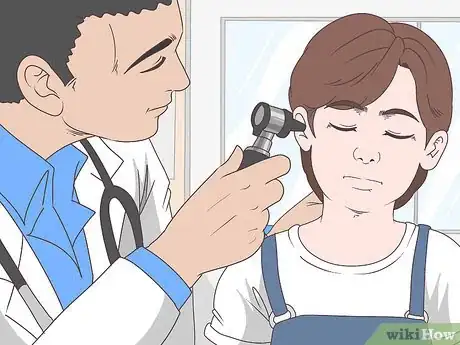

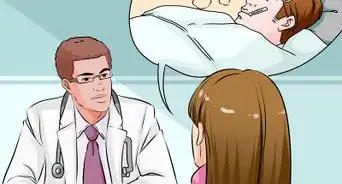

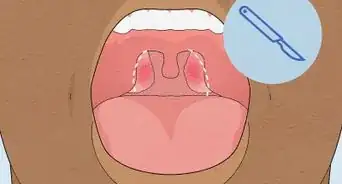



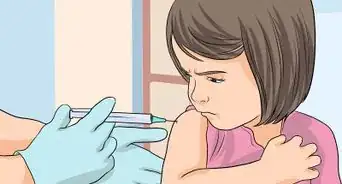

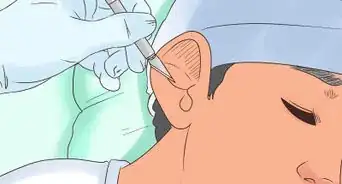
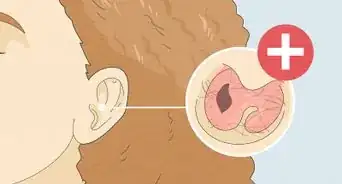
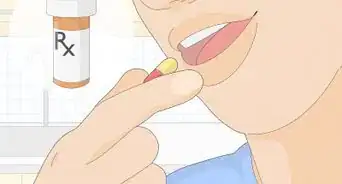









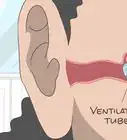
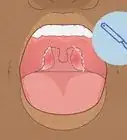




































Medical Disclaimer
The content of this article is not intended to be a substitute for professional medical advice, examination, diagnosis, or treatment. You should always contact your doctor or other qualified healthcare professional before starting, changing, or stopping any kind of health treatment.
Read More...